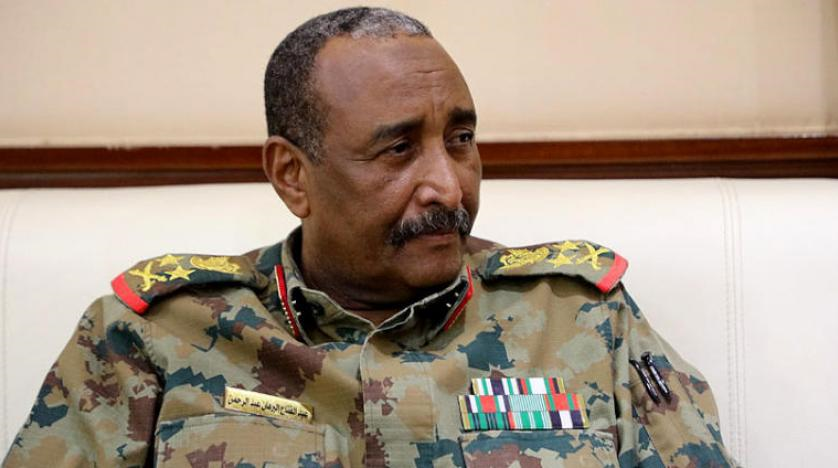
Sudan is experiencing numerous protests following the military coup of 25 October 2021 and the resignation in early 2022 of Prime Minister, Abdullah Hamdok. This has strengthened the military’s grip on power and seems to put an end to the democratic transition the country began in 2019.
For 30 years, Sudan had been under the rule of Omar al-Bashir who ruled under tight military control, violence and poverty. In 2018, a series of protests, with a large number of deaths, took place due to public discontent over rising prices, which led to the fall of the dictator Omar al-Bashir. Pivotal in the development of these events was the role of the military, which supported the protesters in their demands for the establishment of a transitional government to stablish democracy in the country (Aldecoa, 2021). As a result, a civilian-military agreement was reached to hold free elections in 2023, a civilian former UN employee, Abdullah Hamdok, was appointed prime minister and the military’s Abdelfatah al-Burhan, president of the Sovereign Council.
However, the civilian-military coalition was weakened by the military’s attempt to maintain its privileges of absolute control of public coffers, resources and administration. This was denounced by civil movements, as well as they demanded accountability for crimes perpetrated by the security forces against the civilian population. Tensions between the two sides escalated in 2021, especially after a failed coup attempt in September and until October, when a new coup led by al-Burhan happened, in which the prime minister was detained (Aljazeera, 2022a). This sparked a new wave of protests that led to the prime minister’s reinstatement, but confidence in him was lost, as the new deal was seen as a betrayal to the Sudanese people, and the demonstrations continued.
The reinstatement of the prime minister was intentionally made to reassure the population, but it didn’t have the desired effect, so in early 2022, Prime Minister Hamdok resigned from office, leaving the military free reign. The protests continue and are being heavily repressed, with at least fifty-seven deaths, although the full extent is unknown, due to the blocking of internet and phone lines (Aldecoa, 2021; Iosnrd, 2021).
What’s next?
All indicates that the military will be enshrined in power and the mobilisations will be violently repressed, entrenching the coup and establishing a government without popular support. According to experts (Al Zaki, 2022), the military may appoint a civilian prime minister to curb the protests, but this strategy has already failed the first time with the reinstatement of Handok, and the outcome is likely to be repeated. The situation of the population will be exacerbated, with a chronic crisis in the country that was what triggered the 2018-19 protests, the economic situation is expected to turn more critical, with these events negatively impacting on the already precarious living conditions of the Sudanese.
Sudan’s political history has been turbulent since its independence in 1956, marked by coups d’état – 17 over the years – and a civil war that left thousands of dead and the independence of a part of the territory, the new state of South Sudan. In addition, its links with Al-Qaeda led to the country’s inclusion on the list of terrorist states, and Al-Bashir’s fundamentalism led to a massacre in the Darfur region, for which it was accused of genocide and ethnic cleansing by the International Criminal Court in The Hague (Suarez, 2021). The 2019 change of government that ushered in a transition gave Sudan hope and respite, but the new situation represents a reversal of the progress made so far. The civilian population is at a disadvantage, as in the 2018 demonstrations they were supported by the military, but this time they are on their own. Although the international community has condemned the military pronouncement and called for a return to the democratic transition process, they will more likely not intervene, and the blackout and threats to cut off international aid only add stress on a very impoverished population (Aljazeera, 2022b). The year 2023 will be crucial to see whether the new government delivers on its promise to hold free elections as set out in the 2019 transitional constitution or the country will return to the authoritarian rule.
References
Aldecoa, X. (25/10/2021) “Golpe al Sudan que quiere ser libre”. La Vanguardia. Available at: https://www.lavanguardia.com/internacional/20211025/7815786/golpe-sudan-quiere-libre.html
Aljazeera (09/01/2022a) “2 demonstrators killed at Sudan protest against military rule”. Available at: https://www.aljazeera.com/news/2022/1/9/sudan-security-forces-fire-tear-gas-at-khartoum-protesters
Aljazeera (08/01/2022b) “UN to hold talks in Sudan to end post-coup crisis”. Available at: https://www.aljazeera.com/news/2022/1/8/un-to-hold-sudan-talks-to-end-crisis-after-coup
AlZaki, A. (04/01/2022) “Sudán vuelve a la casilla de salida en su transición a la democracia”. El Confidencial. Available at: https://www.elconfidencial.com/mundo/2022-01-04/sudan-vuelve-a-la-casilla-de-salida_3353103/
Iosnrd, E. (21/11/2021) “Sudan’s civilian prime minister is back. Here’s why thousands are still protesting”. Vox. Available at: https://www.vox.com/2021/11/21/22794556/sudan-coup-protests-prime-minister-reinstated-democratic-transition
Suarez, J. (30/10/2021) “Sudán, breve historia de un país que no tiene tregua desde su independencia”. France 24. Available at: https://www.france24.com/es/programas/historia/20211030-historia-sudan-golpe-estado-guerra
By The European Institute for International Law and International Relations.













